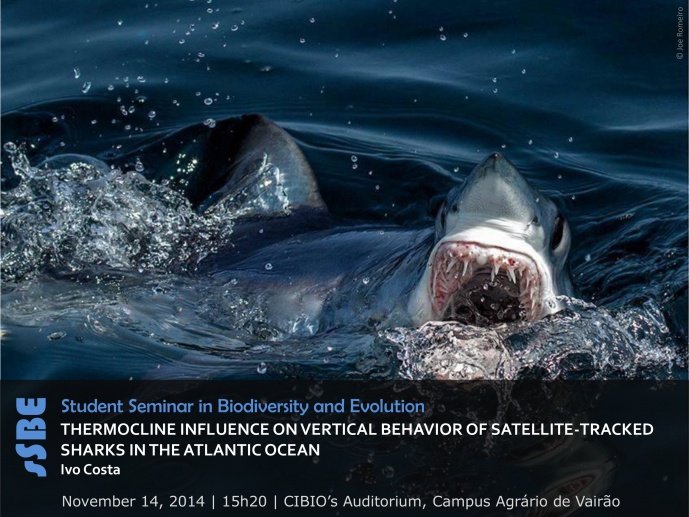THERMOCLINE INFLUENCE ON VERTICAL BEHAVIOR OF SATELLITE-TRACKED SHARKS IN THE ATLANTIC OCEAN

STUDENT SEMINAR IN BIODIVERSITY AND EVOLUTION

The understanding of shifts in the behavior of large, commercially important marine predators is important to the establishment of management and conservation measures. Physical discontinuities in the ocean, such as thermoclines and fronts, influence the distribution, abundance and movement patterns of pelagic predators, due to higher primary productivity and prey transport to fronts by convergence processes. Hence, for pelagic predators frontal zones represent regions of forage accumulation. The objective of this work was to evaluate the effect of thermocline depth and strength on the movements of satellite tagged blue and mako sharks. In this study we analyzed data from eight sharks that were previously tagged with pop-off satellite archival tags in the North Atlantic Ocean and attempted to predict how the shark distance to the thermocline changed with variations in its strength.
Ivo Costa is an undergraduate student in biology at the Faculty of Sciences of the University of Porto. Ivo’s research focuses on understanding the movements and foraging patterns of mako and blue shark in the Atlantic Ocean, under the supervision of Nuno Queiroz (AGE Group).
Image credits: Joe Romeiro